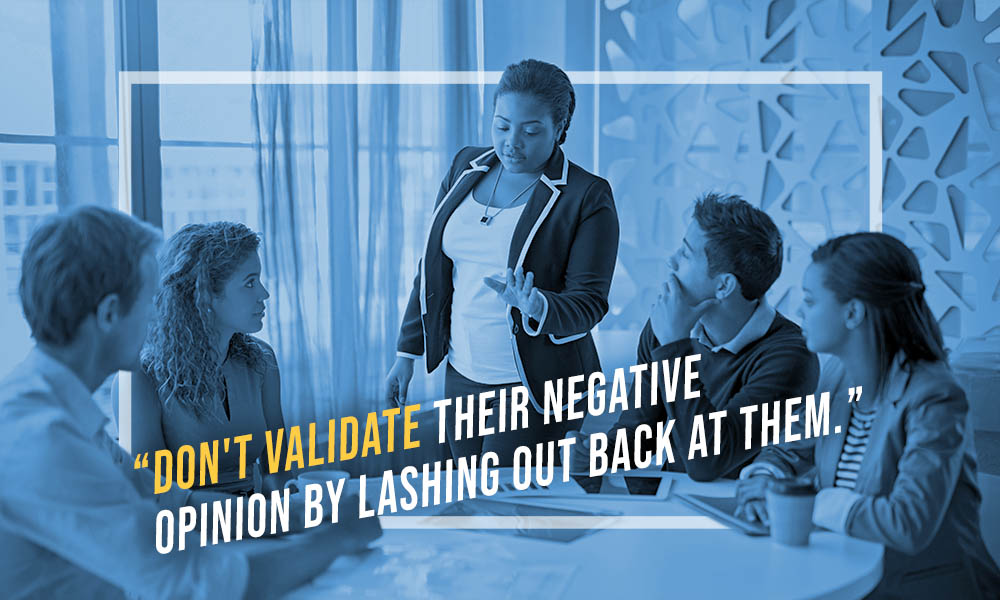When someone makes a negative comment about you or your work, how do you respond? Do you take it personally? Or do you take it in stride?
Your response matters not just in the present but also in terms of your ongoing mental health. Are you able to hold your head high when you receive negative feedback or do you get angry or feel deeply hurt by people passing judgment?
If you react strongly to any less than flattering comment or feel “too sensitive” in your present state, you may have thin skin. If that’s true, no biggie! Thick skin is not something you’re born with. But you can develop it over time.
This article will give you valuable tips on how to get thicker skin so that your days don’t get derailed by the small stuff.
What Does It Mean to Have Thick Skin?
“You need thicker skin,” is commonly said to people who are, in the eyes of society, “too sensitive.” But what does having thin or thick skin truly mean? When you have thin skin, are you actually overly sensitive, or do you just experience emotions outwardly? If you have thick skin, do things actually not get to you, or are you just skilled in handling a natural emotional response?
This quote could be considered a definition of thick skin:
“The tranquility that comes when you stop caring what they say. Or think, or do. Only what you do.” — Marcus Aurelius
However, that’s not very practical for real life. We are social beings. So, naturally, the opinion of others will always matter to us, at least to some extent.
That’s why we like this definition better:
Having thick skin means maintaining relatively even emotions while you process negative comments or insults.
Thick skin gives you the ability to see the big picture and put things in perspective. Little things don’t stop you in your tracks. You can deal with challenging situations and move on with your day.
Honestly, none of us are ever going to achieve universal popularity. So we might as well learn how to increase our mental toughness and deal with everyday dings to our self-esteem. This is a skill that successful people master, and now you can too.
10 Tips for Developing Thicker Skin
With thicker skin comes mental toughness and the ability to have healthy emotional responses. So use these tips to thicken your skin, and you’ll be able to process the small and large hurts of everyday life.
1. Stop and Think

When someone gives you negative feedback, it’s best for your mental health and your future self to pause before you respond. Don’t validate their negative opinion by lashing out back at them.
Take a breath and count to 10. Consider your response, and decide if one is even warranted at all. Experience your negative feelings for a brief moment or two and then decide how to proceed calmly.
2. Evaluate the Hurtful Comment
It’s vital to address the nature of the negative feedback and separate fact from fiction. Is the comment constructive criticism, or is it a flat out insult?
If the negative feedback has some merit and is constructive in nature, you may want to listen. Take some time to think about it further and decide on a course for improvement. Sometimes, we need negative feedback to grow.
If the negative comment is simply an insult with no basis, then dismiss it completely. Don’t give it enough power to upset you. You can move forward because this comment isn’t worth listening to.
On that final note, we’ll go a step further. Always consider the source of negative feedback. Is this someone who has a right to an opinion at all? Are they an authority in this matter? Do they have the necessary experience to advise you? Don’t let a casual email subscriber or social media follower wreck your day, and don’t reward bad behavior by responding. They don’t even know you, and it’s not worth it.
3. Put The Situation in Perspective
As you evaluate hurtful comments, consider the big picture. Beyond separating fact from fiction, acknowledge that there may be some deeper things at work here.
For example, this negative comment may be more reflective of the commenter’s state of mind than your own. In other words: Is it their issue or yours? Happy people don’t put other people down. They just don’t. So keep an “it’s not me; it’s you” mindset. If it helps, remind yourself that this person is probably having a terrible day. They are lashing out at life, not at you.
Alternatively, if you do get angry, you might want to think about your own state of mind and well-being. Is your emotional response appropriate for the insult given? If not, you may need to do some self-reflection. Discover if you are sensitive about a specific topic due to past experiences.
There is nothing wrong with experiencing intense emotions. But if you can’t recover from a comment, know that it’s probably a trigger for you—meaning that it represents a deeper issue that should be addressed.
4. Reframe Negative Feedback Into Positive

Let’s return to the idea of constructive criticism. Assuming that the negative feedback was not mean-spirited, this comment may be necessary for you to hear in order to develop your skills in a certain area or actually learn from a mentor.
Some careers, like writing and foodservice, naturally produce commentary. For someone with thin skin, this can be problematic. That’s why you must learn how to reframe negative feedback as a growth opportunity. The negative impact on your mental health will be minimal, and you’ll be able to actually learn something.
Being able to flip the switch and build your character from negative feedback is a sure sign of developing thicker skin.
5. React With Grace
Whenever we receive negative feedback, we have an opportunity to respond positively and change the tone of the conversation. This can be incredibly difficult while experiencing negative feelings, but the outcome can be extremely powerful.
You have the option not to respond to hurtful comments or to respond gently with a graceful comment. Don’t perpetuate negativity unnecessarily.
6. Confront The Person If Necessary
While responding with grace may be beneficial in some cases, there comes a point where enough is enough. If a comment is particularly mean or someone is repeatedly insulting you, don’t shy away from confrontation. This person needs to know that you won’t accept these belittling comments and little digs into your self-esteem. But when you respond, don’t get angry. Instead, confront them rationally and sensibly.
Let them know that you don’t deserve that kind of treatment. And don’t allow it to continue because you are worthy of being treated with respect.
7. Build Confidence
You can develop thicker skin by building up confidence in yourself and your abilities. By knowing your worth and improving your self-esteem, you’ll be better able to determine what applies to you and what doesn’t, so negative feedback won’t rattle you as easily.
Consciously increase your confidence by writing down what you’re good at and reciting positive affirmations daily.
As you build confidence, remember that perfection is the enemy of good. Reject perfectionism as you take comfort and strength from what you feel confident in. In the long run, perfectionism will only hurt your self-esteem.
8. Spend Time With Positive People

Choose the voices in your life wisely. If you spend enough time around negative people, you will eventually end up on the receiving end of their negativity. Guaranteed. On the flip side, if you spend your time with positive people who lift you up, then you will experience constant validation and kindness.
Which sounds more appealing? This one shouldn’t be a hard tip to put into practice.
9. Seek Help
While you are a perfectly capable individual, sometimes negative comments and insults can get out of hand. You are not alone if this is the case in your life. If you feel that a situation has become unbearable, it’s time to ask for help from a counselor, boss or someone else who can influence the outcome.
You deserve to be treated well. If you are being bullied or if negative feedback is taking a serious toll on your mental health, seek help immediately.
10. Remember That Rejection Is Part of Life
This last tip may seem trite, but it’s true: Rejection happens. And it’s okay to feel upset. But if you remember that everyone gets negative feedback sometimes, it may be easier to move forward.
Think about some successful people you admire. Think of all the thought leaders and world changers you look up to. Gandhi and Nelson Mandela had their critics, even as they fought for necessary changes. Artists who go against the grain, like Lady Gaga, receive a ton of negative feedback. But they all understood that rejection is a part of life, and they didn’t let it stop them from continuing on their path.
In fact, they understood that being “rejected” meant that they had something radically different to contribute in the first place. And that’s a very good thing, in our opinion.
In Conclusion
There you have it! 10 tips to turn your thin skin into thick skin. Try adding some of these tips to your self-care routine, and you’ll be sure to develop thicker skin in no time.
The next time you see a negative comment on your social media or feel a personal slight in real-time, ask yourself if it’s worth getting angry about. Is the negative comment worth impacting your mental health, or is it just one of those little things that don’t even matter?
Remind yourself of the big picture, and remember that you are a successful, worthy individual with control over your emotions. Then, respond with grace and resilience.
You have the capacity to change, grow and confidently impact this world. Don’t let anyone tell you differently.






One Response